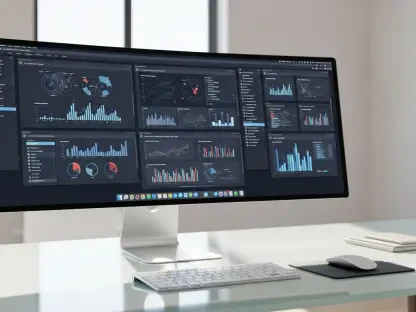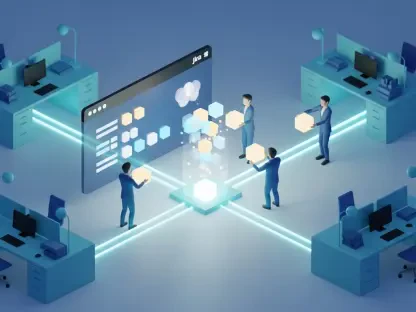The hospitality industry is witnessing a profound transformation driven by rapid advancements in software technology. Hotel managers must now be equipped with an understanding of the key trends that are reshaping operations and guest experiences. These trends, characterized by AI integration, platform consolidation, enhanced customization, improved interoperability, and outsourced services, are now central to hotel management.
AI Becoming Integral to Hospitality Software
Artificial intelligence has transitioned from an emerging technology to a fundamental component of hospitality software. AI tools are now embedded within core products, making them indispensable for completing everyday tasks efficiently.
The applications of AI in hospitality have broadened significantly. AI-powered virtual agents such as Apaleo’s AI co-pilot and TrustYou’s reputation management tools are tasked with managing guest reviews and configuring technology stacks. Cloudbeds offers real-time decision intelligence tools, which automate complex tasks and provide insightful data that supports faster, data-driven decision-making processes. Other notable examples include Lighthouse’s capabilities for transforming performance data into quick actionable insights and Canary’s voice features allowing for hands-free operations.
The integration of AI tools within hospitality software enhances the ability to process large amounts of data, reduces the need for manual intervention, delivers better insights, and improves the overall efficiency of decision-making processes. These advancements ensure that hotels can provide a superior guest experience while optimizing operational workflows.
Consolidation Signaling Platform Maturity
The hospitality software market has experienced notable mergers and acquisitions recently, indicating a transition towards comprehensive platforms that manage the entire guest journey. Significant moves such as Mews acquiring RMS and Atomize, along with Cloudbeds purchasing Whistle, underscore this trend.
The shift from specialized stand-alone products to end-to-end solutions simplifies integration processes and fosters a more cohesive ecosystem for hotel operations. These consolidations offer hotel managers integrated tools that support seamless functionality across various departments, enabling a more streamlined approach to managing guest services and hotel operations.
When evaluating hospitality software, hotel managers are encouraged to prioritize the vendor’s long-term vision rather than focusing exclusively on specific features. Understanding the overall ecosystem and the strategic direction of the software provider is crucial in making informed decisions that will align with the hotel’s operational goals and objectives.
AI Tackling Integration Challenges
The integration of different hotel systems has been a long-standing challenge marked by slow processes, high costs, and frequent errors. AI-driven middleware now addresses these issues by offering automatic data mapping and resolution of schema mismatches.
The use of AI in integration processes brings significant improvements in setup times, reducing the reliance on development teams and minimizing the risk of integration errors. AI-driven solutions foster enhanced interoperability, providing hotels with a seamless technology experience that supports greater operational agility.
The advanced capabilities of AI middleware allow for automatic workflow suggestions, aiding in the optimization of system configurations and operational processes. This development represents a substantial shift towards more efficient integration practices, ensuring that hotels can benefit from a harmonized technology ecosystem while reducing operational complexities.
No-Code Customization Revolutionizing Hotel Operations
No-code and low-code tools have emerged as transformative elements within the hospitality sector, enabling hotel teams to personalize their systems without the need for coding expertise. Powered by advanced AI, these tools offer robust customization options that empower hotels to craft tailored dashboards, automate tasks, and design specific workflows to meet their unique operational requirements.
Examples of no-code customization applications in hotels include personalized housekeeping flows, specialized upsell trackers, and custom branded mobile concierge services. These AI-enabled tools afford hotel managers the flexibility to adapt technology solutions to their specific needs, fostering innovation and improving overall operational efficiency.
The ability to customize software without relying on full-time developers democratizes software development within hotels, providing greater control over technology adoption and deployment. This trend underscores the importance of agility and innovation in hotel management, enabling properties to respond swiftly to changing market demands and guest preferences.
AI-Powered Outsourced Services Enhancing Efficiency
Artificial intelligence is revolutionizing not only software but also outsourced service layers, making these operations more efficient and cost-effective. Tasks such as data analysis, report generation, and copywriting, which traditionally consumed significant time and resources, can now be completed swiftly with AI technology.
AI-powered services enable third-party providers to handle more clients without compromising on quality, offering hotels high-quality outsourced solutions like revenue management and guest communications at a reduced cost. The ability to outsource operational roles efficiently eliminates the need for full-time staff, optimizing resource allocation and enhancing overall organizational performance.
Hotels can leverage these AI-driven services to improve various aspects of operations, from revenue management strategies to guest communication processes. The adoption of outsourced services driven by AI provides an attractive opportunity for hotels to optimize their operations, ensuring a more effective and streamlined approach to managing guest experiences and hotel functions.
Understanding the Transformative Trends
The hospitality industry is undergoing a significant transformation propelled by rapid advancements in software technology. Hotel managers today must understand the primary trends reshaping their operations and guest experiences. These trends include the integration of artificial intelligence (AI), which enhances everything from customer service to operational efficiency. Platform consolidation is gaining momentum, streamlining various systems into a more unified approach. Enhanced customization is becoming a standard expectation, allowing guests to personalize their stay to greater lengths. Improved interoperability ensures that different technologies and systems work seamlessly together, enhancing overall efficiency. Finally, the outsourcing of certain services is becoming more common, enabling hotels to tap into specialized expertise without necessarily expanding their in-house teams. These evolving trends are no longer optional but essential components for modern hotel management, effectively raising the bar for operational excellence and guest satisfaction.









